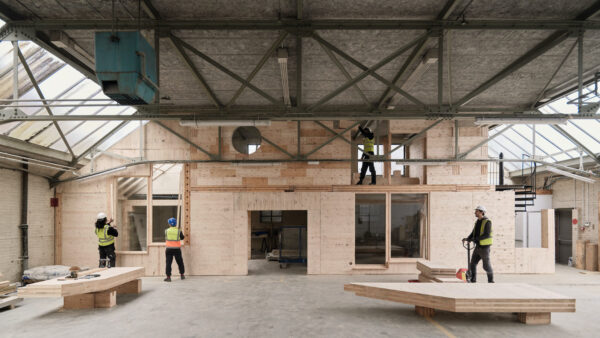Key players in the steel and construction sectors are due to attend a meeting hosted by the Department for Business, Innovation and Skills early this month to assess the level of potential threat posed by imported Chinese steel products.
Issues have been raised concerning the safety of Chinese rebar, which is being produced containing boron and chromium in order to qualify as “alloys” eligible for a 15% tax rebate in China, and also steel plates and sections, which it’s claimed could also potentially have elevated levels of other metals.
Organisations due to be present at the meeting include UK Steel, the trade body which represents UK steel producers including Tata and Celsa; the National Measurements Office; the British Standards Institute; the HSE; the Construction Products Association; the Welding Institute and the British Constructional Steelwork Association.
Gareth Stace, director of UK Steel, said the organisation last year commissioned tests on imported Chinese rebar from the Welding Institute and the results indicate that alloys need specific welding techniques, a finding that construction companies and site managers need to be aware of.
He also raised a red flag over steel plates and sections imported from China. These should carry a CE Mark, indicating they meet the EN 10020 “harmonised standard” for steel products, which sets out maximum allowable levels of other elements.

Concerns have been raised over Chinese rebar produced as alloys (Dreamstime)
Stace told Construction Manager: “If there are plates and sections with elevated levels, then they’re mislabelled. I haven’t got any evidence of mislabelled plates and sections, but knowing exporters are adding these elements to steel, it could be non-compliant.”
But the issues have been clouded by a row between UK Steel and the International Steel Trade Association, which represents firms importing rebar into the UK from China, Turkey and other producer countries.
ISTA has argued that the Chinese rebar imported by its members meets all current quality standards – namely BS 4449:2005 and the CARES standard – and that UK Steel’s efforts to highlight potential problems could be interpreted as a response to the rising tide of Chinese steel imports. In 2014, it’s thought that at least a third of the rebar used in the UK was imported from China.
A spokesperson told Construction Manager: “Fundamentally, it’s [about] the increase in the volume of imports that came through last year. In the UK, we have a number of rebar fabricators who are supplied by the UK steel mill [owned by Celsa] or other steel mills outside the UK.
“You could buy something that meets BS449, but if it has elevated alloy elements then you would have to adapt your welding technique. It could still fall within the standard, but you should be asking for a full chemical analysis [from the importers].”
Gareth Stace, UK Steel
“Both Celsa and our members supply a similar product. We maintain there’s not a risk with the rebar, but that’s the view that has been put across.”
ISTA points to the fact that all Chinese rebar imported into the UK is accredited by CARES, the Certification Authority for Reinforcing Steels, which certifies over 70 manufacturers of rebar from more than 40 countries to a global standard that incorporates BS 4449:2005.
In a statement emailed to Construction Manager, CARES said: “From September 2013 to August 2014, three separate allegations of non-compliance complaints were brought to the attention of CARES, all related to CARES-approved Chinese manufacturers. CARES investigated the three complaints quickly and effectively, and found no evidence of sub-standard products. The first two investigations were completed within two months, the third within four months.”
In January, UK Steel launched its Charter for UK Sustainable Steel, which has been endorsed by a number of MPs and signed by contractors Balfour Beatty and Morgan Sindall. It promotes the use of responsible sourcing standard BES 6001.
At UK Steel, Gareth Stace told Construction Manager that the meeting is being held precisely to fathom out the degree of risk and an appropriate response.
UK Steel also argues that BS 4449:2005 did not foresee the possibility of other metals being added to rebar, and it is therefore urging the British Standards Institute, the owner of the standard, to update the technical criteria underpinning BS449.
Stace said: “You could buy something that meets BS449, but if it has elevated alloy elements then you would have to adapt your welding technique. It could still fall within the standard, but you should be asking for a full chemical analysis [from the importers].
“The actual standard doesn’t foresee that anyone would purposefully add those elements so we’re proposing to BSI that they add new clauses to bring it into line. Then you would be sure that BS 4449 doesn’t have allow elements above a certain level.”
In a statement, the Construction Products Association said that it was working on strengthening checking regimes to ensure EU standards were met on all CE-marked construction products entering the UK.
It said: “Industry is best placed to recognise and vet those goods which have not met the stringent stamdards and testing required, and the onus in the first instance is on manufacturers and distributors to protect and police their market. That said, we are working with UK government departments to address the lack of market surveillance and enforcement by agencies both here and across the EU, not only for steel products but for all construction products.”










